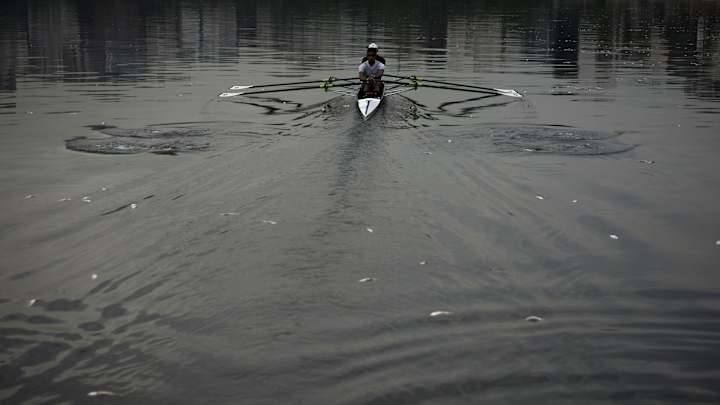Rio Olympic head says venue with fish die-off will be safe

RIO DE JANEIRO (AP) The head of the Rio 2016 Olympic organizing committee promised Friday that the venue for rowing and canoeing would be safe despite a massive fish die-off in the small lake that will host the events.
Sanitation workers have removed at least 37 tons of rotting fish from the Rodrigo de Freitas lake in central Rio since last week.
''Work is being done at the Rodrigo de Freitas lake, it is underway and it will be delivered in conditions to host the competitions without any problems,'' Carlos Nuzman said at the unveiling of commemorative coins for the games.
Severe water pollution threatens to embarrass the Olympic host. Rio Mayor Eduardo Paes has acknowledged the Olympics have been a ''wasted opportunity'' to clean the lakes, rivers and even the waters lapping the famous beaches.
Biologists list pollution as the cause of the die-off, though state officials say it was caused by a change in water temperature.
Nuzman, a former Olympic volleyball player, is an International Olympic Committee member, as well as the head of the organizing committee and the president of the Brazilian Olympic Committee. He is a former president of the national volleyball federation.
He said he was not qualified to give specifics about the clean-up.
''My sport is volleyball, so I can't tell you what needs to be done,'' Nuzman said. ''I'd like to, though.''
Such fish die-offs are common in Rio, where waterways are blighted by raw sewage and garbage. The lion's share of Rio's sewage goes untreated into its surrounding waters. In February, a fish species called twaite shad died en masse in the blighted waters of the Guanabara Bay, where the Olympic sailing events are to be held.
In winning the Olympic bid in 2009, Rio organizers promised that stemming water pollution would be a major legacy of the games.
Rio is spending about $12 billion on the games, a mix of public and private money to build sports venues and urban infrastructure. The biggest project is a subway line into the upscale western Rio suburb of Barra da Tijuca, the heart of the games.
---
Follow Stephen Wade on Twitter: http://twitter.com/StephenWadeAP
---
Associated Press reporter Renata Brito contributed to this report.
